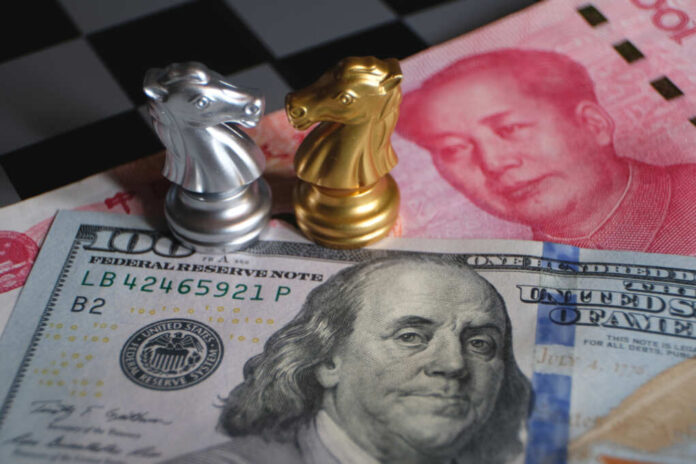
According to recent data from Future Union, a non-partisan trade group, American public pension funds in the U.S. invested $68 billion over the three years ending June 30, 2023, in a finding that worries the report’s authors because it capitalizes China’s economy instead of the domestic economy with U.S. earnings from American businesses.
“The U.S. tax code gives special privileges to encourage wealthy individuals and entities to maintain generous giving preferences and risk-taking in return for shielding wealth under legal tax status exemptions,” the report says.
American Union pension funds are helping to prop up the Chinese economy and stock market! What is the wisdom in that?
U.S. Public Pensions Continue Investing Billions in Communist Chinahttps://t.co/qgAAHoUpLw
— Dmturk (@abledanm) February 29, 2024
“Many of these benevolent institutions’ investment decisions have been unprincipled, betraying our country’s interest by investing in countries of concern like China,” the report adds, warning that American businesses are missing an enormous opportunity to use billions of dollars worth of capital because pensions are sending their enrollees’ savings overseas.
According to the report, the New York State Common Retirement Fund (NYSCRF), with over 1.2 million public employees, invests the most out of any U.S. pension fund in China.
US Public Pensions Investing Billions in China Despite Divestment Talk
American public pensions have invested about $68 billion over the past three years that ended on June 30, according to recent data from a nonpartisan trade group called Future Union. The organization’s… pic.twitter.com/JP20pLu2sV
— Tony Seruga (@TonySeruga) February 26, 2024
“The United States benefits from an open investment climate and this new program will not change that. It is narrowly targeted at investments in highly sensitive technologies and products for the purposes of protecting U.S. national security,” the Treasury said in a statement last summer when the White House banned investment in Chinese tech, AI, and semiconductors.
“Treasury anticipates excepting certain transactions, including potentially those in publicly traded instruments and intracompany transfers from U.S. parents to subsidiaries,” the Treasury wrote, indicating that not only is the current administration warmly open to investing in China, but it also makes exceptions to the national security ban on tech investments in China.
In December, Andrew King, executive director of Future Union, told CNBC, “This is a staggering 75% renewal rate by pension portfolio managers entrusted to responsibly manage the retirement wealth of the U.S. pensioners, despite the geopolitical implications,” referring to the funds with investments in China.
“It’s become the latest greenwashing, where everybody says the right things [about divesting from China] but getting them to adhere to it is a different story,” King said.














